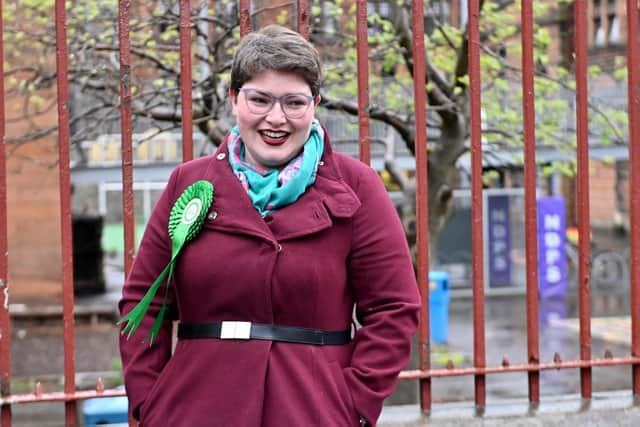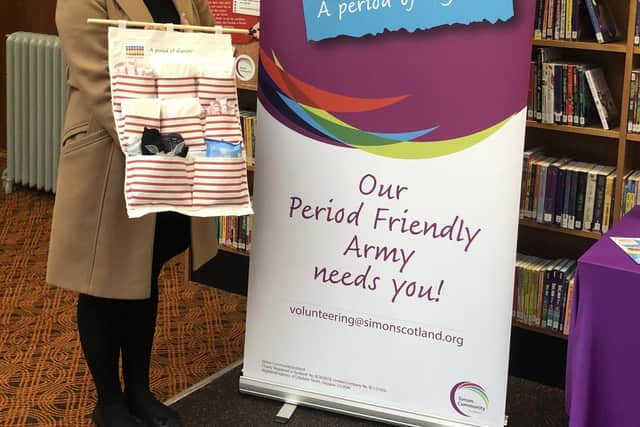Dismantling the boys' club: Major report aims drive up the number of women in Scottish local politics


In a project called, ‘Making It Happen for 2027: Transforming local democracy for women’, the groups Engender, Elect Her and Women 50:50 call for action from key players across political parties, government, councils and the media to ensure more women are in decision-making positions at local authority level by 2027.
It comes after the May council elections saw women’s representation rise just six per cent from 29 per cent to 35 per cent.
Advertisement
Hide AdAdvertisement
Hide AdThe four-report research, seen exclusively by the Scotland on Sunday ahead of its launch on Monday, highlights the figure as “well below” equal representation.


Amongst a raft of calls within the reports, a Scottish Government Multi-Stakeholder Taskforce dedicated to addressing the gender imbalance at local authority levels has been recommended.
The taskforce hopes to keep the issue in the “collective spotlight over the next five years” by monitoring women’s participation in local politics and evaluating progress throughout the election cycle.
The project also urges the government to increase wages for councillors and guarantee access to parental leave as well as improving support for those with caring responsibilities.
And it says the media plays a role in improving representation, and recommends editors introduce more diverse voices to writing about local issues and politics and create opportunities for more women to enter political journalism.


Maggie McTernan, a former Glasgow Labour councillor, has welcomed the recommendations as she remembers facing sexism when working in the local authority.
The ordained minister and doctor left the council for multiple reasons, including added caring responsibilities, managing another job and the “antagonistic political culture”.
McTernan, who stopped running for council in this year’s elections, said previous jobs she worked in had training, line-management and personal development plans.
Advertisement
Hide AdAdvertisement
Hide AdHowever, when she first stepped into the council role in 2017, she said there was no infrastructure in place to support new councillors.
McTernan said: “There is an expectation that you will work it out for yourself and you will learn from your mistakes which is not a hugely encouraging way to learn.
"There are cultures of decisions being made in tearooms or corridors and when you walk into the meeting the decision is already made.
"It’s getting better but it’s bit of a boy’s club. It’s not what you know, it’s who you know.”
McTernan said ways of operating in the council structure “patterned around men’s lives” as women, including herself, had more caring responsibilities and so were at times excluded.
An attitude of “minimising women” was also present, according to the former councillor.
During meetings, McTernan can think of several occasions where she was interrupted by men when they did not interrupt other men, men leaning in to intimidate her and men repeating a point she made earlier.
"A couple of male colleagues also referred to me as a girl. I was 47 when I was elected. I’m an ordained minister and I’m now a doctor so I’m not a girl,” McTernan said.
Advertisement
Hide AdAdvertisement
Hide AdThe new reports recommend councils develop clear pathways for complaints, better workplace HR-style support, and take action on abuse, bullying and harassment in all forms.
For political parties, it recommends creating targeted support for women councillors – particularly those from diverse backgrounds – in the role, focusing on multiple-term retention and committing to voluntary quotas at all elections which could be enshrined in election byelaws or equivalent “so progress cannot backslide”.
McTernan said she may have run for council once more if she had such support.
Holding the same tenure, Kim Long was a Green councillor in Glasgow for five years before deciding not to run again this year.
Ms Long, who was a carer for six years, said low wages such as her starting salary of £17,000 is a “fundamental barrier” to not having more women “get in and stay in” councils.
Long said women tend to have more caring responsibilities and cannot take on a job where “you are expected to do full-time but get paid part-time”.
Facing a family crisis in the year she took the decision to step down, Ms Long said there was no cover to help her during this difficult point in her life.
Long said the “toxic culture, impossible workload and unsustainable pay” led her to make the decision to not run for council again.
Advertisement
Hide AdAdvertisement
Hide AdA full-time salary, good childcare, structures of support and reasonably-sized wards would make her reconsider re-running, however, it would “take a lot”.
Ms Long said: "The only time media and political parties pay attention to the imbalance of representation we have is the days after the polls and what use is that? The candidates have been selected well in advance so we need to do that long-term development work to create a welcoming space for women.”
Jen Layden, who was an SNP councillor in Glasgow for five years, said the barriers women face in politics were some of the main reasons she decided not to run again.
Layden, who works for the NHS, said: "The way the female leader was spoken to in quite misogynistic language in council and then on social media shows how mindful and respectful we need our male colleagues to be.”
The project includes a host of materials including a quick “how-to” guide helping local councillors ensure the needs and concerns of women are central to local decision-making as well as research examining women politicians’ representations in election media coverage.
Jessie Duncan from Engender said: “When it comes to local decision-making, women’s voices have long been missing, and the pace of change for women elected to local councils remains glacial.
"If we want to see gender-equal representation in our councils become a reality at the next local authority elections in 2027, action is needed now.”